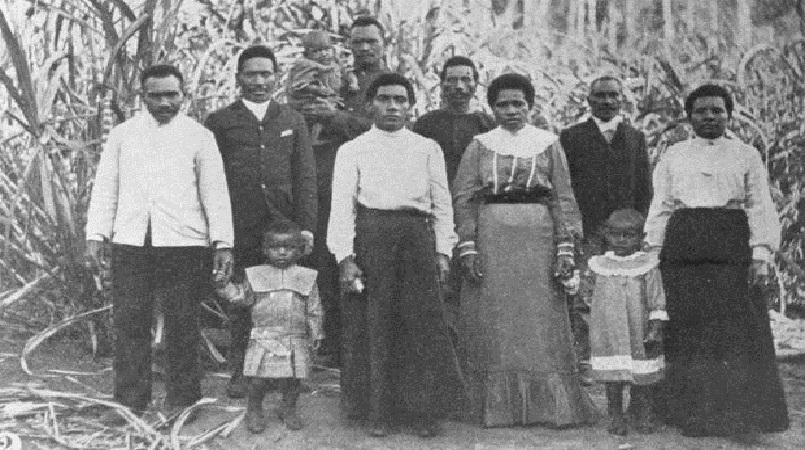
More than 150 years on, many descendants of the victims of blackbirders still don't know about the dark history which brought around 60,000 Pacific Islanders to Australia.
The short film "Blackbird" has been helping to raise awareness about Australia's blackbirding history which saw mainly Melanesians kidnapped and sent to work on plantations in the 1800s.
The film was the culmination of a long personal journey for Australian Solomon Island filmmaker, Amie Batalibasi, who wanted to find out more about the experiences of South Sea Islanders in Australia who were blackbirded.
The late 19th century practice of "blackbirding" involved recruiting, often by force and deception, labourers from Solomon Islands, Vanuatu and Fiji to work on the sugar and cotton plantations of Queensland.
Although three of her ancestors were blackbirded, she said she knew very little about their story.
"This history is one that's very much been shoved under the carpet in Australia, but what does remain is this oral history that has been passed down from generation to generation.
"And you know, I was very privileged to have worked with the South Sea Islander community in and around Brisbane, so through that, I was able to hear some of those stories."
One of the film's actors, Jeremy Bobby, said he also had no knowledge about Australia's blackbirding history.
"To be quite honest, everyone that I speak to, and I say the term 'blackbird' - no one knows a clue and this is like, in Australia, this is in Brisbane.
All my friends in Brisbane, my family that I speak to, they really don't know anything about it and it shows how much has been shoved under the rug, how much we actually haven't been told."
Blackbird tells the story of Solomon Islander siblings, Rosa and Kiko, who were kidnapped from their island home to work on a sugar cane plantation in Queensland in the late 1800s.
The stories shared by other South Sea Islanders who shed light on the experiences of their ancestors helped Ms Batalibasi during the film's production.
"It was a lot about hardships and how people came over and a lot about the loss of culture and how hard it was and a lot about how people died as well.
Many of them died of sickness and actually one thing that I did hear was, many people mentioned that some people just died of heartbreak of just being taken and being in an alien environment and having such harsh conditions."
Ms Batalibasi said question and answer sessions held after some of the film's screenings allowed other descendants of Islanders who were blackbirded to share their stories as well.
